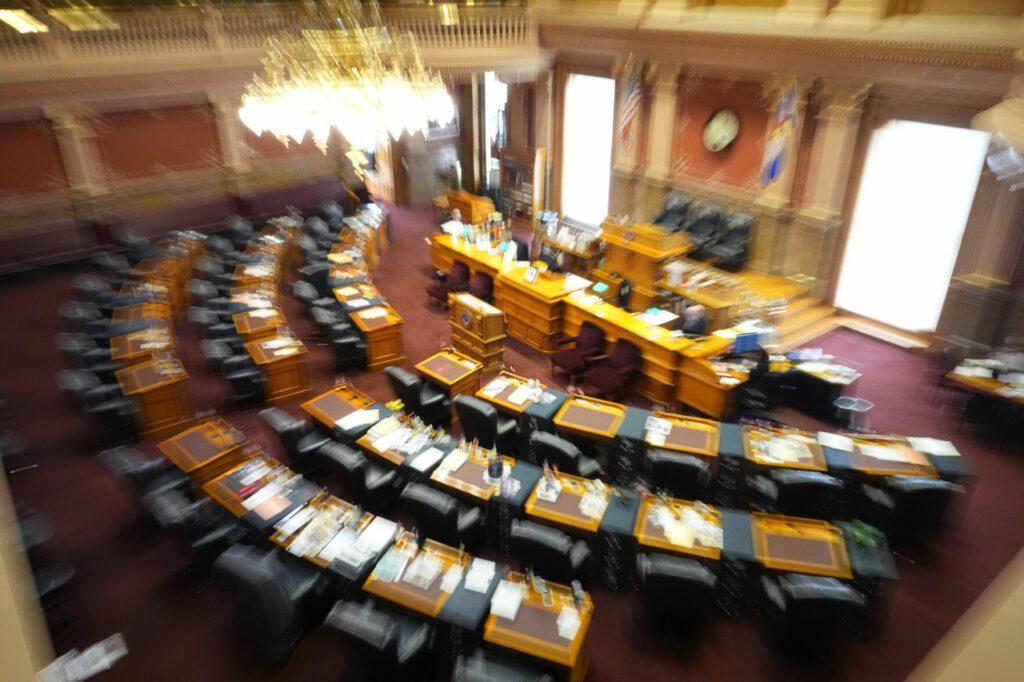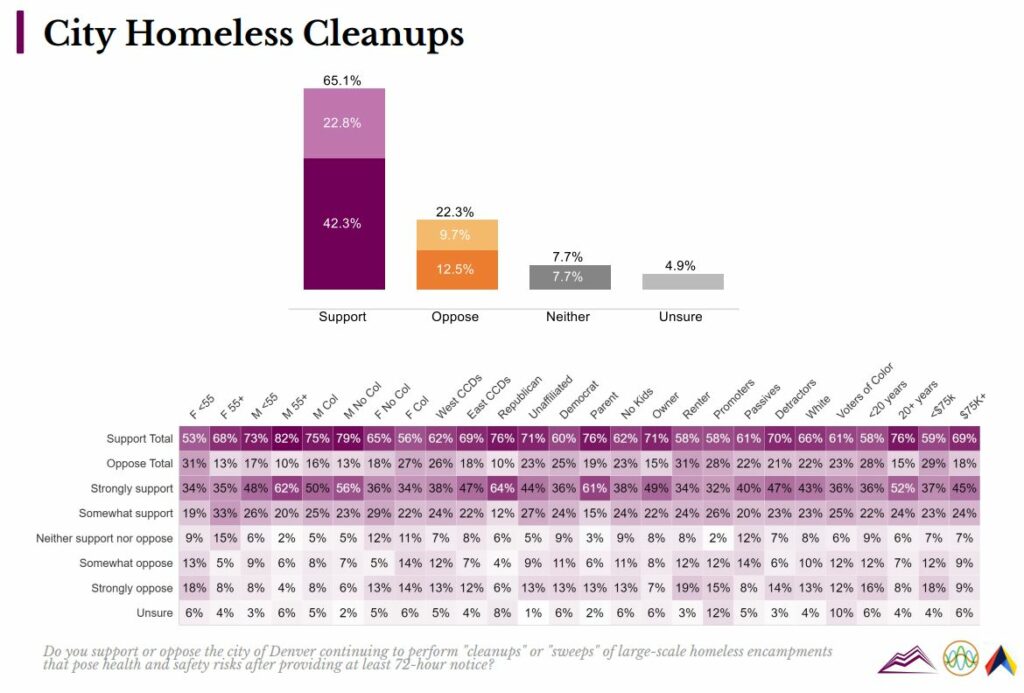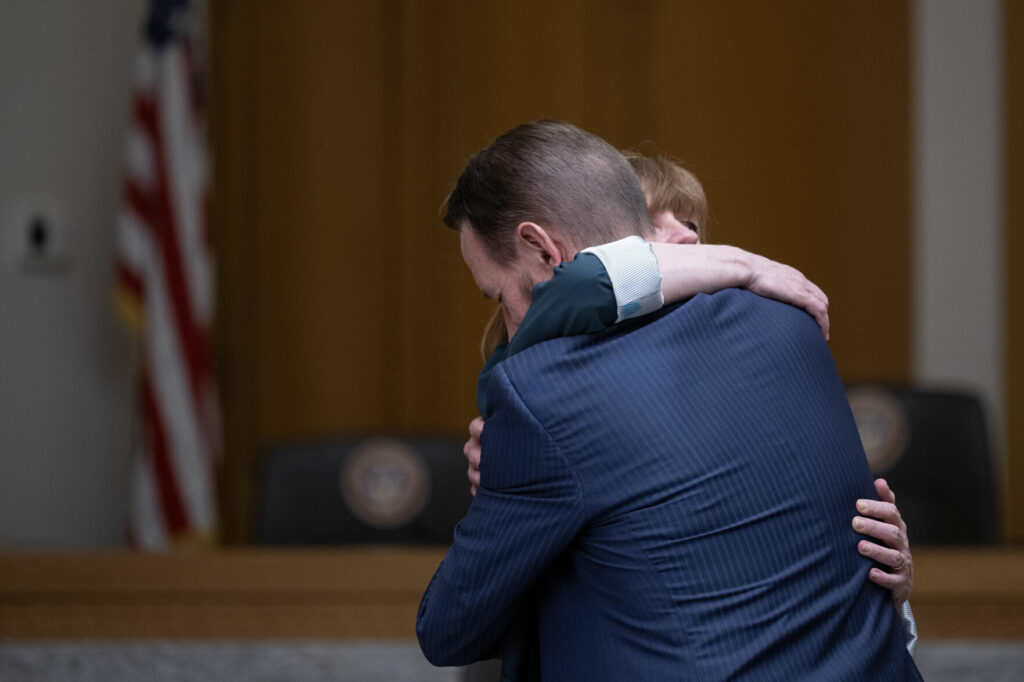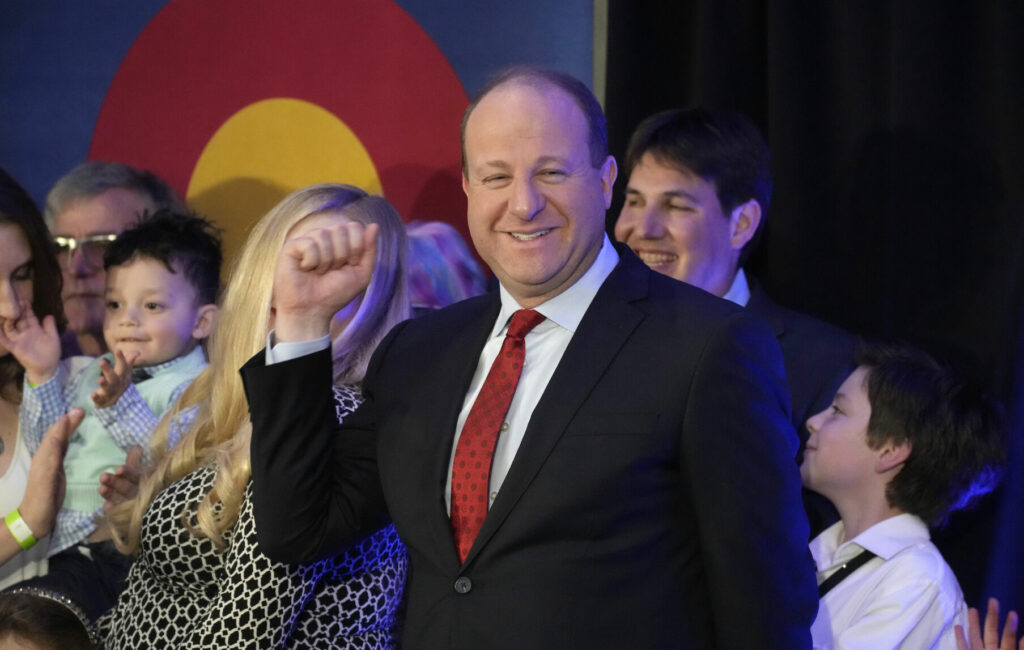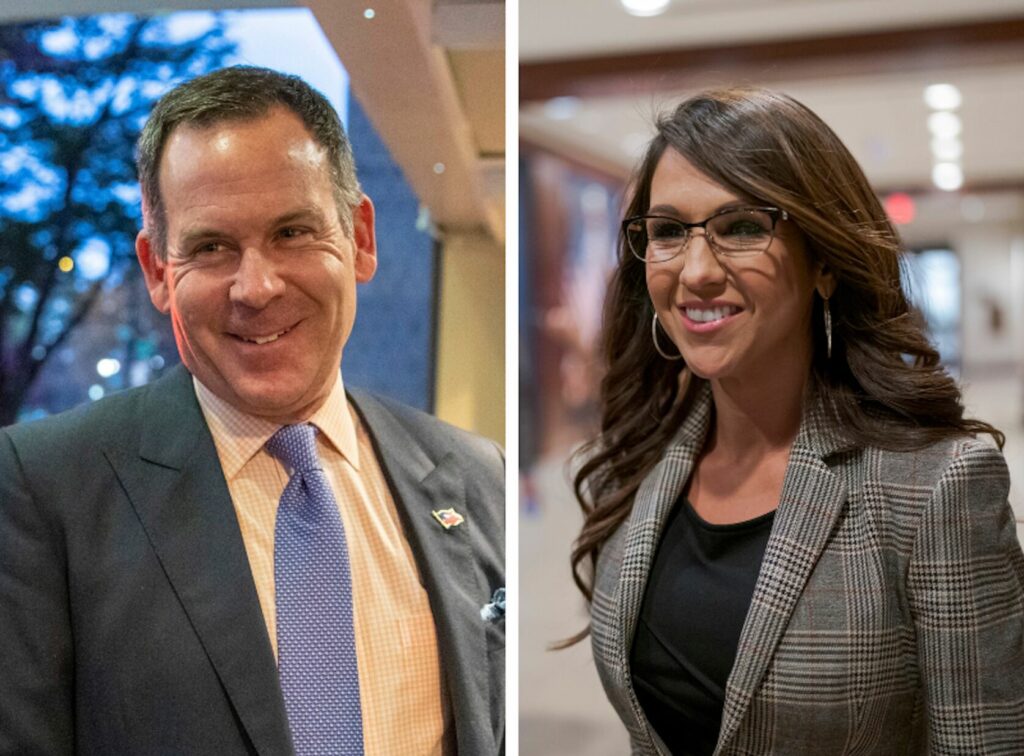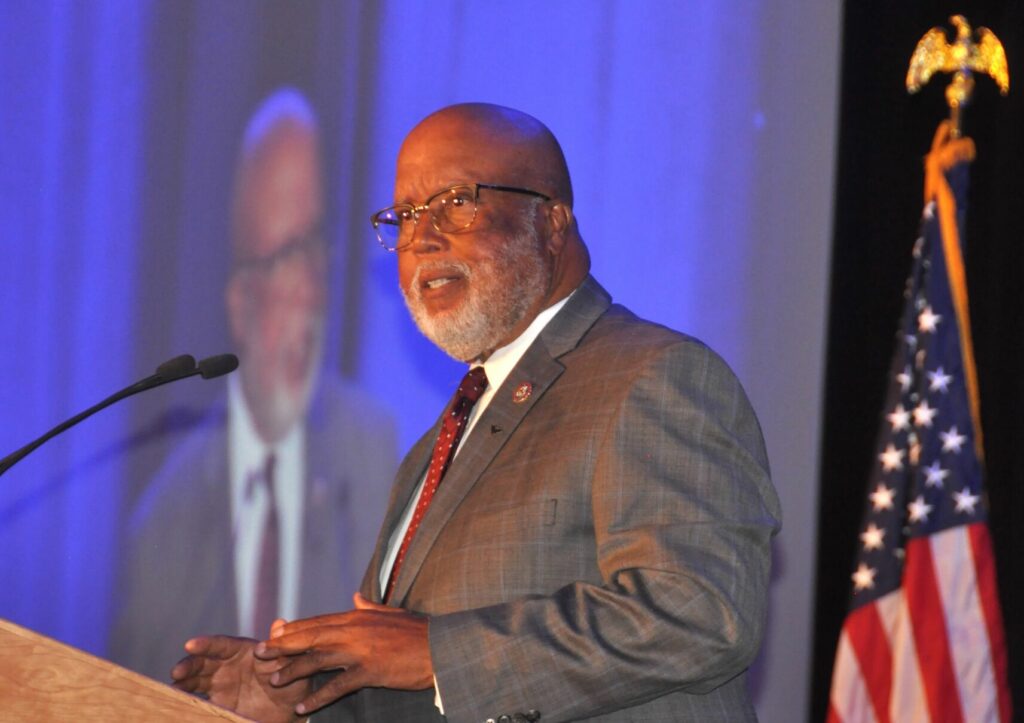Colorado congressman regrets vow to ‘stop redistricting’ in campaign pitch

U.S. Rep. Ken Buck said a campaign solicitation sent to his political supporters earlier this week, which told them that he needs their money in order to stop the current redistricting cycle, sent the wrong message.
“This is serious, and a lot is at stake. We still need $3,102 to have the resources to stop Democrats from completely redrawing the maps,” an email from the Windsor Republican’s campaign explained. “All donations will go towards our Stop Redistricting Fund.”
Clicking the “contribute” link in the email takes email recipients, drawn by the message that Democrats are out to redraw the district he represents in a way to eliminate him from Congress, to a webpage where they’re asked to send monthly recurring contributions to the Stop Redistricting Fund.
Except there’s no Stop Redistricting Fund, and Buck has no intention nor mechanism to stop the current redistricting, which occurs every 10 years, in accordance with Article 1, Section 2 of the U.S. Constitution.
The email is “simply a fundraising email for Buck’s campaign,” his campaign spokesperson wrote in an email, later noting that “the contribution page clearly states that the donation benefits Buck for Colorado,” in small, grey print, below the more prominent “ALL DONATIONS WILL GO TOWARDS THE STOP REDISTRICTING FUND.”
But after reviewing the contribution solicitation, sent by his campaign in cooperation with the national Republican fundraising organization WinRed, Buck called it “confusing,” “inartful” and “poorly worded.”
Buck said he has no intention to stop the redistricting process, and he said he’s tried to maintain distance from it in order to help maintain the independence of Colorado’s independent redistricting commissions.
“I haven’t talked to anyone who’s been at public hearings,” he said. “I haven’t made any suggestions in the media about what I think the maps should look like.”
Redistricting is how political power is regularly reapportioned. The idea is to count every one – a core reason for the U.S. Census Bureau – and equally redistribute U.S. House seats to get a nearly equal number of constituents for each district. Sometimes states gain or lose U.S. House seats according to where the population grows. During this cycle, Colorado is getting an additional, 8th congressional district because of the state’s booming population.
Buck’s campaign solicitation says that “Democrats are working incredibly hard to redistrict CO-04 so Nancy Pelosi can gain another seat in the House.” And while it’s true that each party generally tries to advance its goals by getting maps that maximize the number of districts it can win, in 2018, Colorado voters overwhelmingly passed a set of ballot measures that removed the process from the hands of elected officials, and put it into the hands of citizen commissioners: four Republicans, four Democrats and four non-party-affiliated voters for each commission, one that redraws the state legislative maps and one that redraws the state’s congressional map.
“He has no authority to stop redistricting,” Jessika Shipley, the independent commission’s lead staff member, said about Buck’s email. “Redistricting is constitutional.”
Buck said he agrees with Shipley.
“I think the way it was worded, it sounds like it would be the case that we could influence the redistricting process if you just give us a little money. That’s not true, and that’s not what the campaign is trying to do,” Buck said. “I think what that email was trying to say is that when the redistricting process is over, if I am redistricted into a tough district I will need the resources to run in that district.”
Buck currently represents a congressional district with an 11 percentage point Republican advantage, but he said he heard of map possibilities that would have put him into a nearly evenly split district. The current preliminary draft map has him in a district with an 18 percentage point Republican advantage.
The redistricting cycle is a relatively quick process, with maps being redrawn in a matter of months during years that end with “1.” Colorado’s commissions are planning to finish maps and submit them to the state supreme court for review and approval in October, even though Buck’s email asks people to give money to his re-election campaign each month, under the premise that it will go to the nonexistent “Stop Redistricting Fund.”
Shipley said the campaign contribution solicitation was also concerning because it could lead someone to believe they need to also try to stop the process.
“People who aren’t paying close attention to politics might not necessarily understand what redistricting means, or what it will affect or not affect. So there’s always a concern that someone could take some action based on misunderstanding it,” she said “It’s something that concerns me. It’s something that concerns the commissioners. It’s something we’ve been concerned with since the beginning.”
The commission has already had to pull comments from the online public comment portal because they were deemed to be threatening, Shipley said, and a sheriff’s deputy was called to a recent commission hearing in Frisco over a disturbing individual.
Buck said that was the most important problem with his campaign solicitation, which he wants to correct.
“People are scared, with the Afghan situation, with the border situation, with the last election and the January 6th riots. People on both sides are scared,” Buck said. “The last thing I want to do is gin up hostility in the room, especially when we have people who are, in good faith, looking hard at this and doing a good job. I want to make sure that email in no way is encouraging anyone to act in an aberrant way. I don’t think it calls for violence, but I do think it’s something that could have an unintended consequence, encouraging people to become overly mad about something and take action.”
Campaign fundraising based on inaccurate premises or making false promises is nothing new or exclusive to one party. In the past several years, politicians on both sides of the aisle have used current events to fundraise for their own political campaigns with little, if anything, to show the donations went to the cause they were championing.
In September, 2019, Gov. Jared Polis sent out emails to supporters, asking them to send in donations to fight back against recall efforts targeting Democratic lawmakers. The 2019 recalls Polis targeted were against Sens. Pete Lee of Colorado Springs, Brittany Pettersen of Lakewood and Senate President Leroy Garcia.
Polis’ email directed donors to his Polis for Colorado campaign account, not to the organizations actually fighting against the recalls (Our Colorado Way of Life and Democracy First Colorado). Neither group ever reported getting any donations from Polis in 2019. How much Polis raised from that email is unknown.
Earlier that summer, emails seeking donations for Take Back Colorado, a campaign finance account controlled by then-House Minority Leader Patrick Neville and his brother, Joe, claimed the money would go to recall efforts against Polis.
But the donations raised through those emails never showed in the accounts of the groups doing the work. Organizers for two recall groups told Colorado Politics at the time that they were frustrated because they never heard from Take Back Colorado about the money it was raising for the recall. Take Back Colorado never sent any money to the Resist Polis PAC or to Dismiss Polis, the two campaign finance groups, although the Colorado Liberty PAC, a campaign finance account controlled by Joe Neville, Patrick’s brother, did send $5,000 to Resist Polis.
It’s also unknown how much those emails generated in donations.
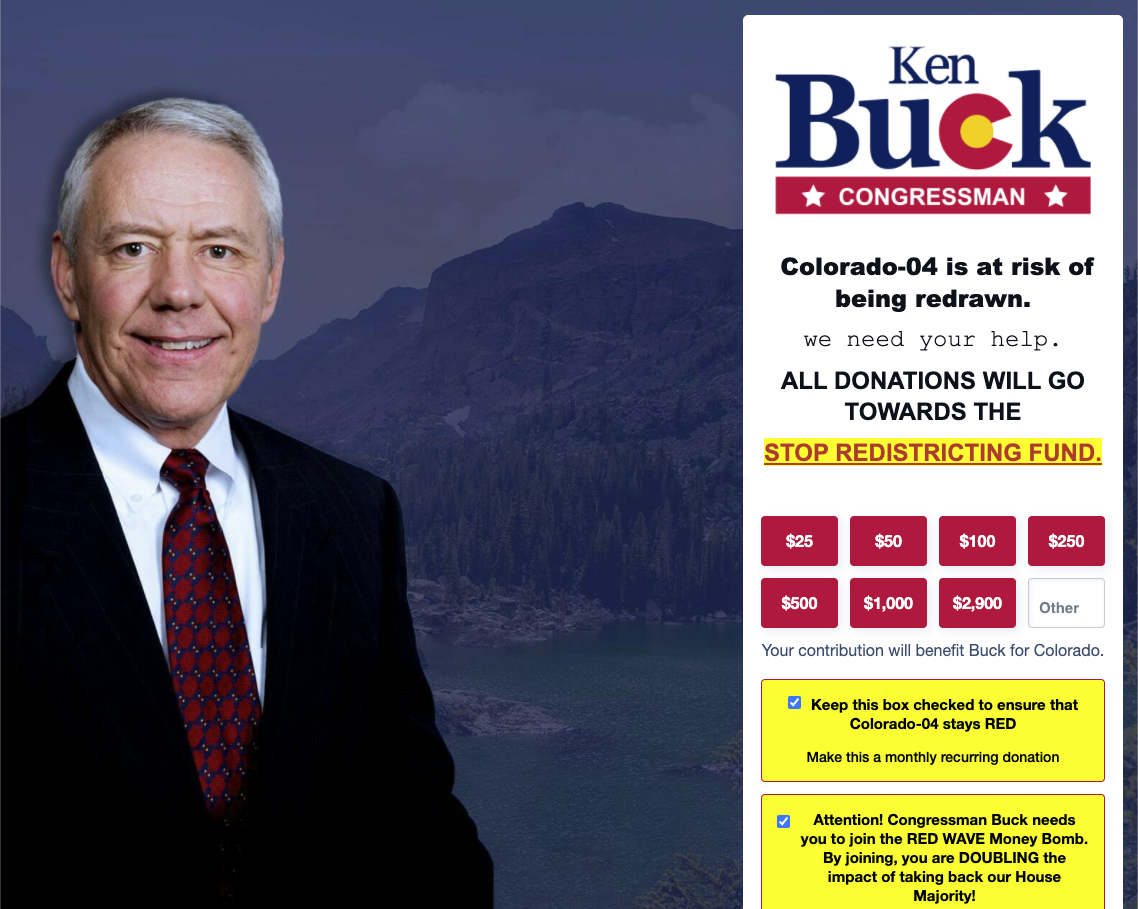
evan.wyloge@gazette.com


